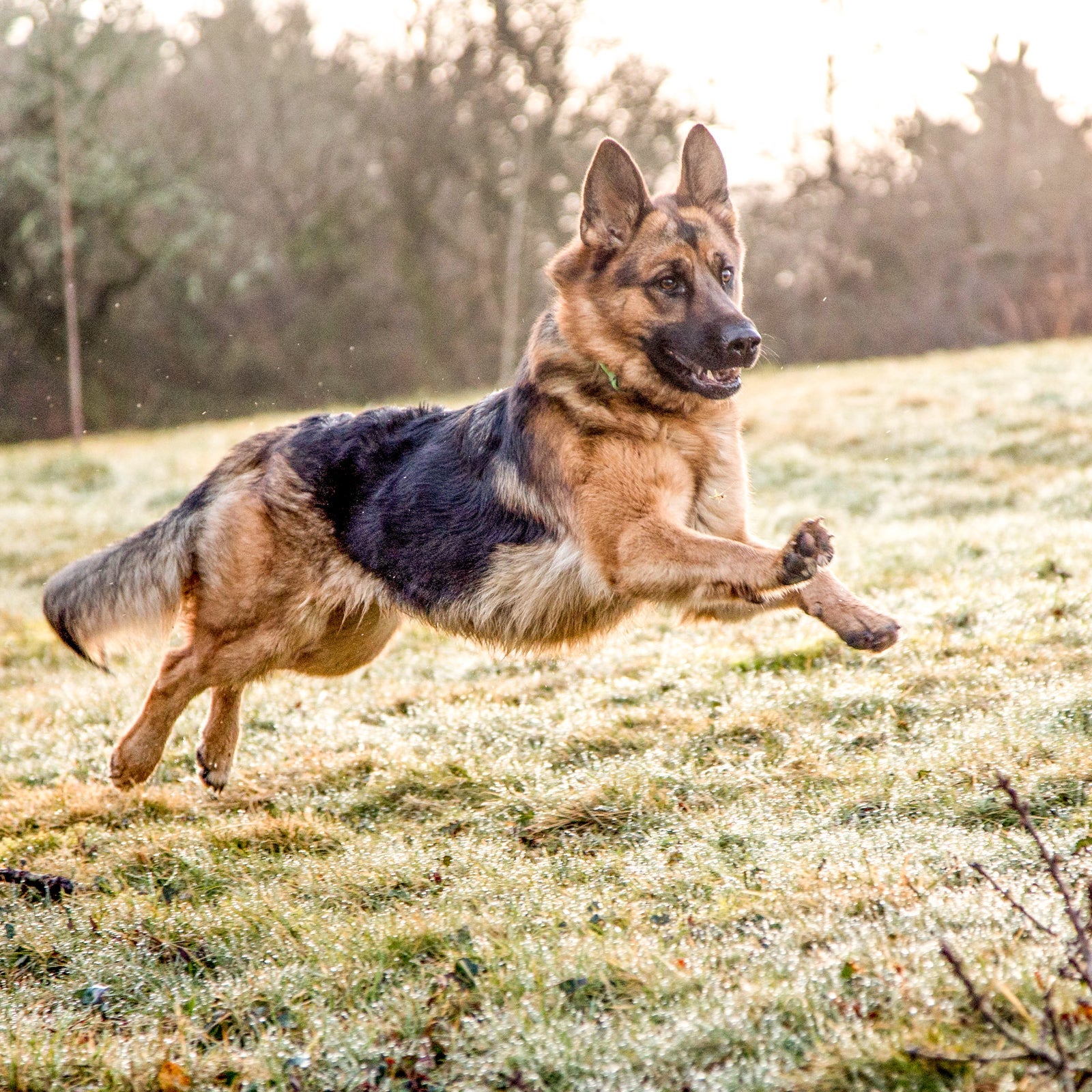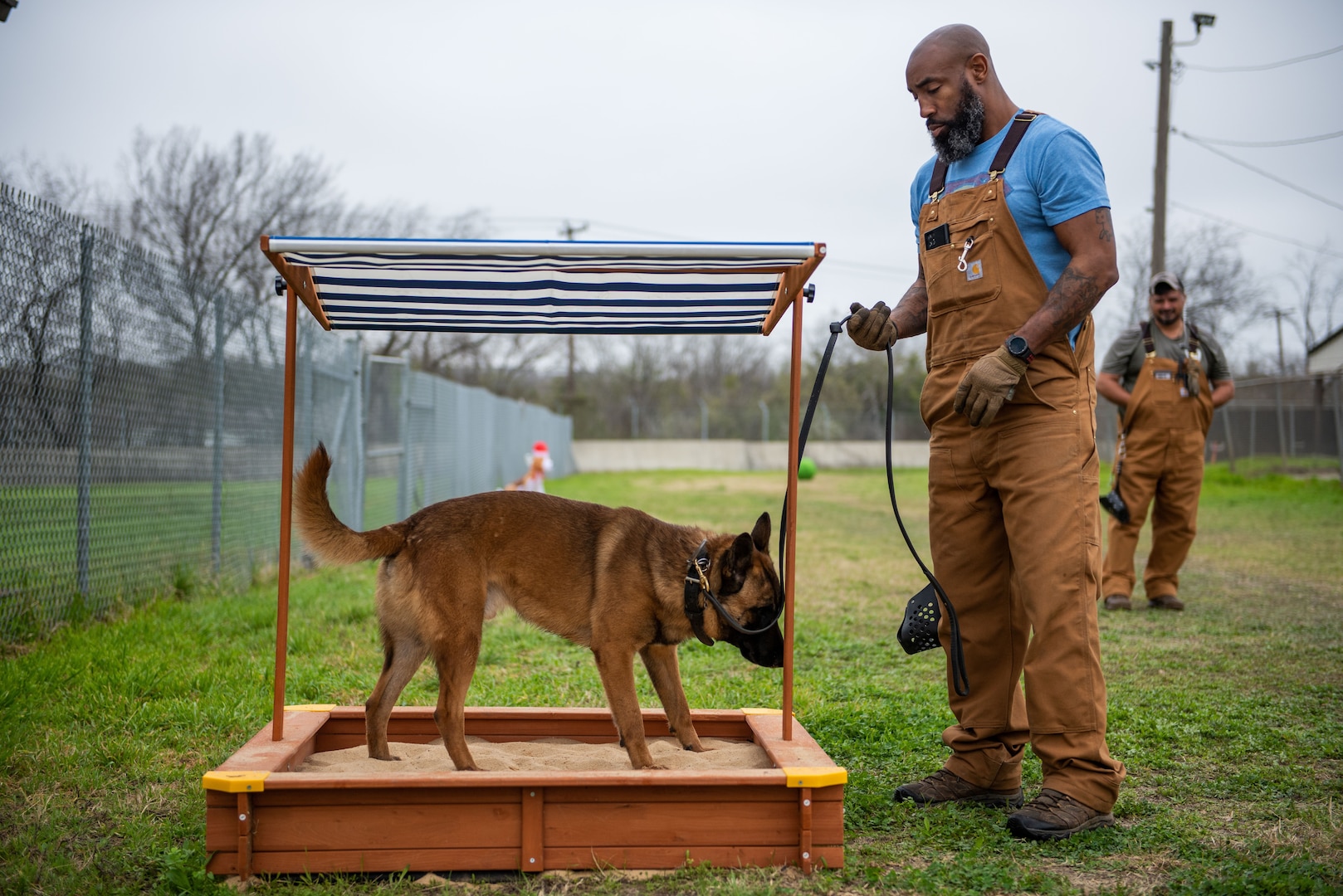Dog Training Strategies to Solve Common Behavior Problems
Dog Training Strategies to Solve Common Behavior Problems
Blog Article
The Ultimate Guide to Dog Training: Transform Your Animal's Actions
Effective dog training is vital for promoting an unified relationship between family pets and their proprietors. This overview not only aims to equip you with the essential devices to transform your canine's behavior however also welcomes you to check out just how these fundamental principles can lead to a much deeper link with your family pet.
Recognizing Dog Habits
Recognizing dog habits is crucial for effective training and a harmonious partnership in between pet dogs and their owners. A dog's habits is influenced by a mix of genes, atmosphere, and experiences. Dog training. Recognizing these factors enables owners to customize their training approaches to fulfill the private demands of their pet dogs
Pets connect largely through body movement, articulations, and facial expressions. For circumstances, a wagging tail can indicate exhilaration or joy, while a put tail may signal concern or entry. Observing these hints allows owners to respond appropriately, reinforcing positive behaviors and addressing adverse ones properly.
Additionally, comprehending the social structure of dogs can provide understandings right into their behavior. Pets are pack animals, and they grow in a structured atmosphere. Establishing consistent rules and clear boundaries can avoid complication and promote a feeling of safety.
Additionally, identifying the natural impulses of canines, such as need to dig or chase, is vital. These reactions can be rerouted with suitable outlets, such as play or exercise. By thoroughly comprehending these behavioral elements, owners can promote a positive training experience, inevitably resulting in a well-adjusted and obedient canine buddy.
Essential Training Techniques
Reliable dog training depends on a variety of vital methods that can significantly improve the learning procedure for both the dog and the proprietor. One essential technique declares reinforcement, which involves gratifying desirable habits with deals with, praise, or playtime. This technique motivates pet dogs to duplicate the behaviors that cause favorable results, promoting a trusting partnership in between the pet dog and proprietor.
An additional trick technique is consistency in commands and expectations. Utilizing the same verbal signs and hand signals helps the pet dog recognize what is called for, minimizing complication and advertising quicker discovering. Additionally, establishing clear limits and rules is critical for efficient communication.
Socializing is additionally an essential element of training. Revealing dogs to different atmospheres, people, and various other animals aids them develop ideal social abilities and reduces stress and anxiety in unfamiliar situations.
Finally, persistence and timing are vital. Training sessions should be frequent yet brief, making certain that the pet continues to be engaged and responsive. By utilizing these necessary strategies, proprietors can produce a positive and structured training experience that promotes good actions and strengthens the bond with their canine buddies.
Producing an Educating Arrange
How can a well-structured training routine boost a canine's knowing experience? A training schedule provides uniformity, making certain that canines get routine, concentrated guideline. This predictability assists canines comprehend what is anticipated of them, strengthening their discovering and enabling for far better retention of commands and habits.
When creating a training schedule, it is vital to think about the pet's age, breed, and individual temperament. Youthful pups might take advantage of much shorter, much more constant sessions, while grown-up dogs may grow with longer, much less constant training durations. Including a selection of tasks can additionally maintain the sessions engaging, avoiding dullness and advertising enthusiasm for knowing.
Furthermore, organizing training sessions at particular times of the day can aid solidify a routine. Combining training with day-to-day strolls or playtime can develop a positive association with learning. more It is additionally crucial to consist visit here of time for support, such as treats or appreciation, to reward wanted actions immediately.
Last but not least, flexibility is key. While uniformity is essential, being adaptable to the dog's mood or energy degree can improve their understanding experience. A well-crafted training timetable ultimately lays the structure for efficient interaction and a more powerful bond between the pet dog and owner.
Usual Educating Difficulties
Despite having a well-structured training schedule, pet proprietors commonly come across various obstacles throughout the training procedure. One typical problem is incongruity in commands and hints. When multiple member of the family use different terms or tones, a dog might end up being overwhelmed, impeding its capacity to find out efficiently.
One more frequent difficulty is diversion. Dog training. Pets are naturally curious animals, and exterior stimuli such as other pets, noises, or people can divert their interest during training sessions. This calls for owners to create a regulated setting or progressively present interruptions to reinforce focus
In addition, differing energy levels can affect training results. High-energy canines might battle to calm down and concentrate, while more easygoing breeds could need extra inspiration to engage. Tailoring the training strategy to fit the individual pet dog's temperament is necessary for success.

Structure a Strong Bond
A solid bond between a pet and its owner is essential for effective training and total well-being. Dog training. This connection promotes trust, which is vital for efficient communication throughout the Continued training procedure. When a pet really feels secure and linked to its owner, it is more probable to react positively to commands and hints
To construct this bond, consistency is crucial. Establishing a regimen that includes routine feeding, workout, and training sessions helps produce a sense of security. Additionally, favorable reinforcement strategies, such as deals with, appreciation, and play, enhance desired actions while strengthening the emotional link.
Socialization is an additional essential aspect of bond-building. Revealing your pet to different environments, individuals, and other pets helps them feel a lot more confident and comfortable, boosting the bond with their owner. Taking part in tasks with each other, such as strolling, playing fetch, or participating in obedience training, advertises team effort and shared pleasure.
Verdict

Recognizing canine habits is important for effective training and an unified partnership between dogs and their proprietors.Efficient pet training counts on a variety of vital techniques that can significantly improve the learning process for both the owner and the dog.In spite of having a well-structured training timetable, canine proprietors frequently come across numerous challenges during the training process.In final thought, efficient canine training relies on a thorough understanding of canine habits, the application of necessary strategies, and the facility of an organized training schedule. By stressing favorable reinforcement and consistency, dog owners can substantially boost their animals' behavior, inevitably ensuring an unified connection and advertising the well-being of both the pet and its atmosphere.
Report this page